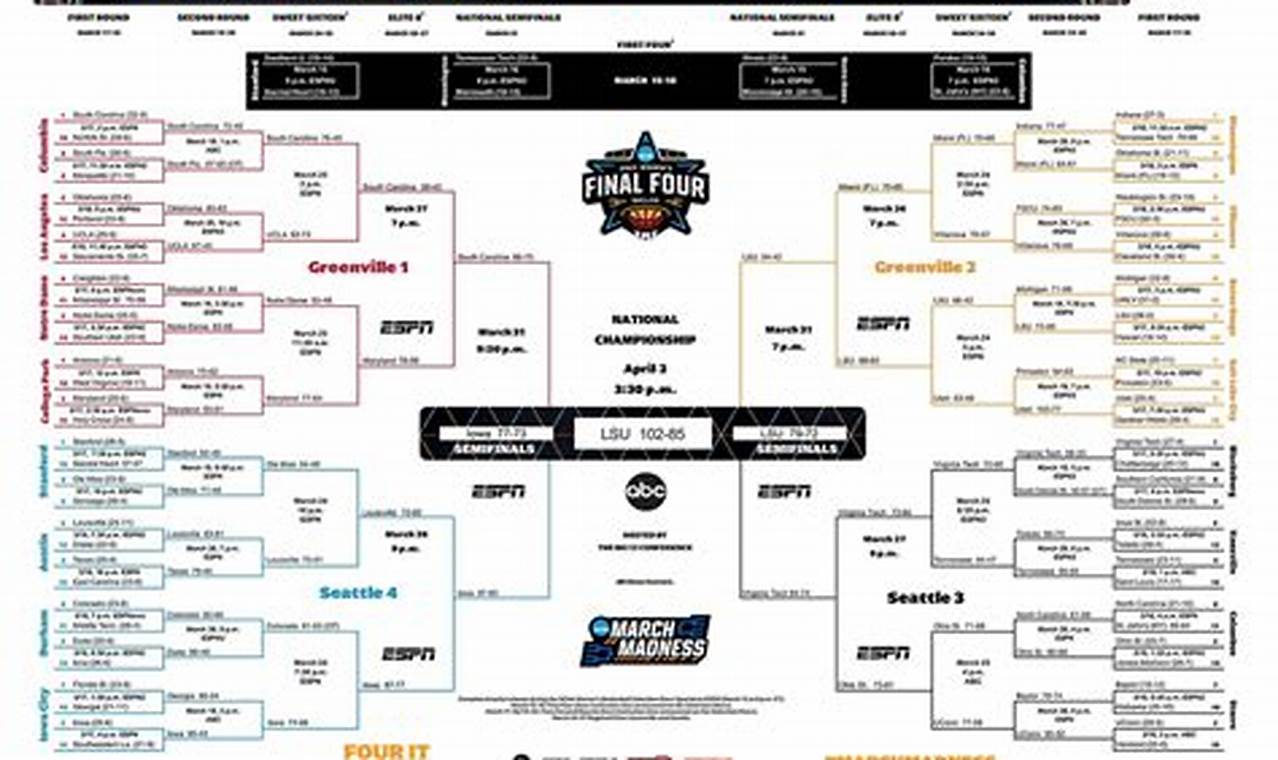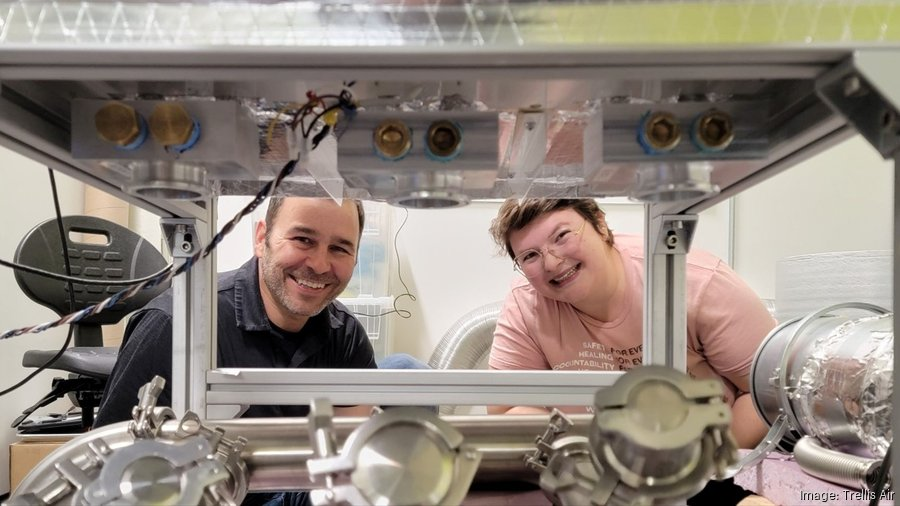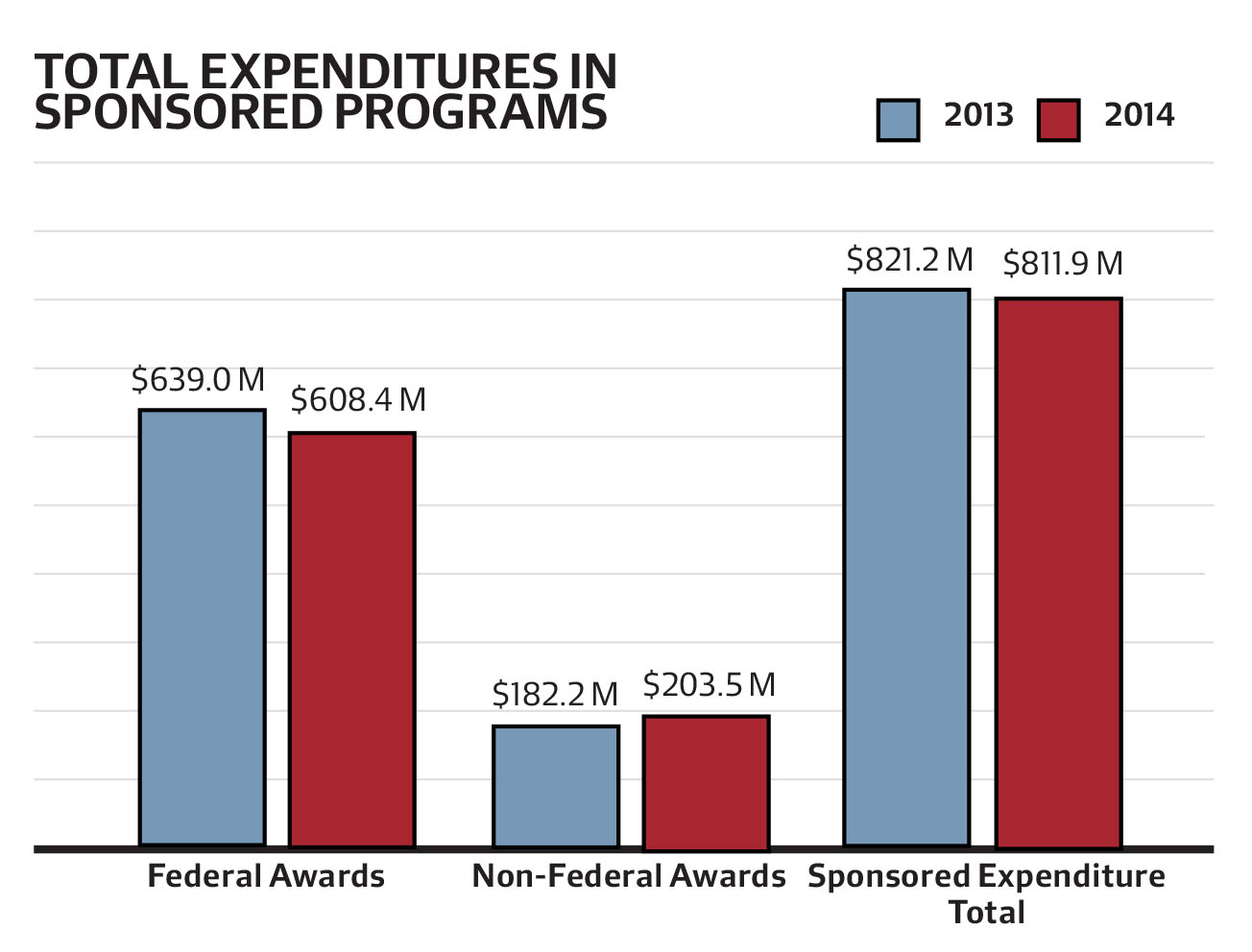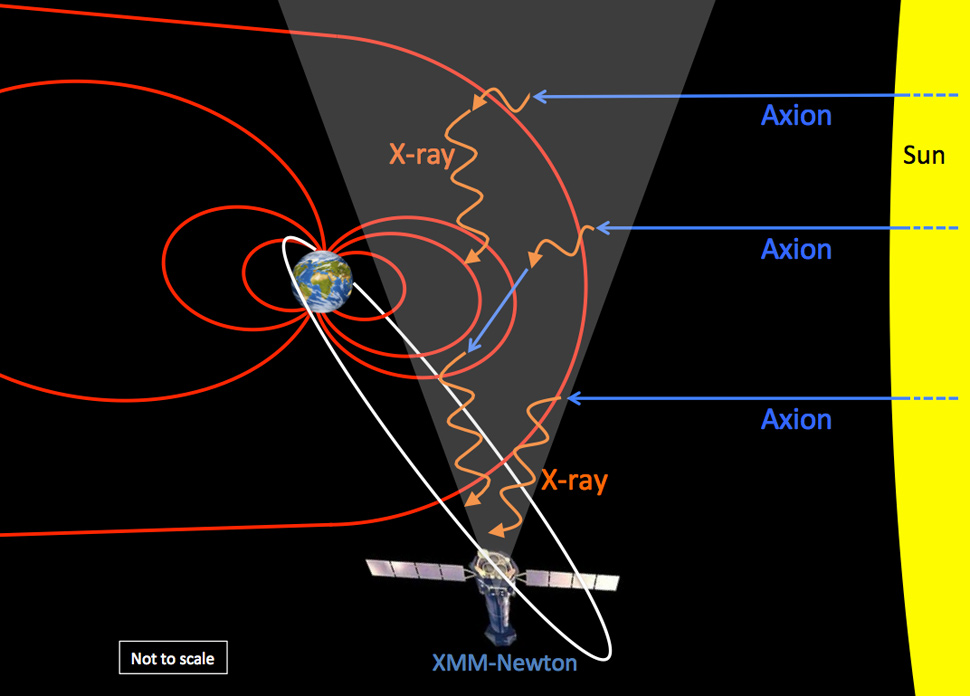
NCAA Bracket Odds: Why Perfection is Nearly Impossible
In the exhilarating world of college basketball, NCAA bracket odds play a crucial role in the strategy behind predicting tournament outcomes. As fans gear up for March Madness, understanding these odds can significantly enhance your chances of crafting that elusive perfect NCAA bracket. With an intricate blend of statistical analysis and historical March Madness statistics, enthusiasts can delve into bracket predictions that elevate their game during the tournament. Winning your office pool often hinges on a keen grasp of upsets and favorites, making an NCAA tournament guide an invaluable asset for participants. As the tournament unfolds, the quest for the perfect bracket continues to challenge even the most seasoned fans.
When it comes to navigating the madness of the NCAA tournament, examining odds related to selecting the ideal tournament bracket becomes essential. Analyzing statistical trends and historical matchups can guide enthusiasts in making informed bracket choices, ultimately enhancing their tournament experience. The pursuit of a flawless prediction becomes even more dynamic, especially as fans strive to conquer their office pools amidst the unpredictable nature of collegiate basketball. With a comprehensive guide to the tournament, participants can develop a strategic approach to their bracket selections, balancing favorite picks with potential upsets. Ultimately, whether you refer to it as bracket odds or tournament predictions, mastering the nuances of March Madness is key to standing out among fellow contenders.
Understanding the Odds of a Perfect NCAA Bracket
The odds of crafting a perfect NCAA bracket are astronomically low, making it a nearly impossible feat for any basketball fan. As explained by experts, the probability is calculated using the formula of 1 over 2 raised to the 63rd power, resulting in a number that reaches into the quintillions. The sheer tension of trying to guess the outcomes of 63 different games, where one singular team must stand victorious, can be intimidating. This statistic mirrors situations like winning the Powerball multiple times, which further emphasizes the improbability. Despite the excitement surrounding March Madness, achieving a perfect bracket remains more a dream than a realistic expectation.
Notably, no one has officially reported winning a perfect NCAA bracket throughout the tournament’s storied history. The reasoning behind this lies in the unpredictable nature of the games and the presence of upsets that frequently alter expected outcomes. Even statistically robust predictions cannot account for unexpected performances from lower-seeded teams defeating favorites, which often occurs despite historical trends. As fans eagerly fill out their brackets every March, being aware of these statistics is crucial for setting realistic expectations while still enjoying the thrill of the tournament.
Making Strategic Picks for NCAA Bracket Success
When filling out your NCAA bracket, strategy plays a pivotal role in increasing your chances of success, particularly if you aim to win your office pool. While many participants often lean towards selecting top seeded teams, successful bracket prediction requires a balanced approach, including identifying potential upsets. By studying March Madness statistics, you can spot trends regarding which lower-seeded teams tend to pull off surprise victories, allowing you to make informed decisions that may set you apart from other competitors.
A winning strategy also involves understanding the dynamics of your office pool. If you’re part of a large group, emphasizing unique selections is paramount. Picking a mix of favorites alongside a few well-researched upsets can elevate your bracket. This requires diligent review of team matchups, performance histories, and even current player conditions. By leveraging available information and predictions, you’ll not only enhance your chances of winning your office pool but also engage much more deeply with the tournament experience itself.
Tips for Winning Your Office Pool
Winning your office pool during March Madness isn’t merely about skill; it’s also about strategy and nuance. With many participants having similar picks, it’s crucial to differentiate your selections. One effective strategy involves identifying a few well-timed upsets and integrating them thoughtfully into your bracket. By going beyond just picking the favorites, you increase your chances of standing out in a crowd. Remember, the more people in the pool, the more critical your unique picks are to secure the lead.
In conjunction with selecting surprise winners, utilizing resources like NCAA tournament guides and expert analyses can help inform your decisions. Many fans overlook the importance of statistical insights that can highlight trends and pairings that may not be immediately obvious. By staying updated with March Madness statistics and recent performance data, you can make smarter choices that give you leverage in a competitive bracket pool.
The Role of Research in Bracket Predictions
Research is a game-changer when it comes to predicting outcomes in the NCAA tournament. Relying solely on gut feelings or team colors may suffice in casual settings, but a thorough analysis is essential for serious bracket prediction. By studying previous tournaments, analyzing player trends, and observing team dynamics, you can enhance your decision-making process. Statistics on head-to-head matchups and seeding patterns provide critical context that can help you foster a more strategic approach to filling out your bracket.
Engaging with comprehensive data sets and leveraging analytical tools can uncover insights that enhance your NCAA bracket odds. Tools that analyze metrics such as points per game, defensive ratings, and win-loss ratios can be incredibly beneficial. These numbers can help you recognize hidden opportunities, like potential upsets that might yield substantial returns within your bracket selections. Employing a research-driven mindset ensures you arrive at your predictions with a firm understanding of the current climate of the tournament.
Common Mistakes to Avoid in Bracket Prediction
Even the most seasoned March Madness enthusiasts can fall into common traps when making their bracket selections. One significant mistake is over-relying on past performance without considering the current dynamics of each team. While historical success can imply a team’s ability, many factors—such as injuries, player turnover, and new coaching strategies—can drastically alter a team’s performance in the tournament. This adaptability is essential to account for in your predictions to avoid skewed expectations.
Additionally, many participants tend to pick all favorites, which can limit your chances of winning your office pool in larger groups. Occasionally choosing a lower-seeded team that has been on a winning streak or is considered a dark horse can be crucial. Balancing safe picks with a few riskier options ensures that you don’t blend into the crowd, which is essential for noteworthy placement amongst competition.
Tracking March Madness Statistics: The Key to Bracket Success
Understanding and tracking March Madness statistics is integral to creating a competitive bracket. As the tournament progresses, being aware of key metrics such as team performance, player statistics, and game locations can illuminate which teams are most likely to advance. By analyzing how teams perform against different styles of play, you gain insights that are useful for predicting potential upsets and determining favorable matchups. This analytical approach can often separate a winning bracket from one that falters by the first weekend.
Statistics reveal the patterns of tournaments past; noticing how certain teams historically perform in high-pressure games can provide valuable context. Customizing your bracket selections based on these patterns, along with expert insights and matchup analysis, can significantly boost your odds of success. With no perfect bracket ever recorded, this method arms fans with tactical insights to sharpen their strategies throughout the NCAAs.
Leveraging Expert Insights for Better Bracket Predictions
Engaging with expert analysis and insights can vastly improve your NCAA bracket strategies. Many sports analysts offer their perspective on team strengths, weaknesses, and matchup considerations, providing valuable context that mere statistics cannot cover alone. Tuning into pre-tournament shows, reading player and coach analyses, and even following social media channels dedicated to March Madness can provide nuanced perspectives that help ground your bracket decisions in current realities.
Furthermore, expert predictions that explore lesser-known factors—such as a team’s psychological resilience or how well players perform under pressure—can enrich your understanding of potential outcomes. This added intel can lead to more informed selections when considering potential upsets and favorites, thereby enhancing your chances of achieving success in both personal and office pools.
The Importance of Commitment in Bracket Challenges
Committing to your bracket selections can significantly influence your enjoyment and ultimate success during the NCAA tournament. While it’s tempting to second-guess and alter selections as games progress, establishing a well-researched bracket at the outset can encourage you to stick with your predictions. The thrill of the tournament lies in its unpredictable nature; therefore, standing firm on your picks fosters a deeper connection with the unfolding drama.
Commitment applies not just to predictions but also to engaging with the tournament’s atmosphere. Following games closely, joining discussions, and participating actively in your office pool enhances the camaraderie and excitement of March Madness. This approach transforms passive viewing into an active experience, allowing you to appreciate the skills of teams competing for the championship more profoundly.
Maximizing Your Enjoyment During March Madness
Maximizing your experience during March Madness goes beyond just filling out brackets—it encompasses embracing the unique culture of the tournament. From hosting gatherings where friends and family can share their predictions to forming community groups for bracket challenges, the social aspects can significantly amplify the thrill. Sharing in the highs and lows of upsets and victories with fellow fans creates memorable moments that transcend simple competition.
Additionally, immersing yourself in the historical aspects of the NCAA tournament can enrich your strategy and engagement. Understanding legendary games, iconic performances, and the evolution of team dynamics adds layers of excitement to your predictions. Reflecting on the intensity of past tournaments enhances appreciation for this pivotal period in the sports calendar, transforming each game into a profound experience rather than just another event to watch.
Frequently Asked Questions
What are the odds of completing a perfect NCAA bracket?
The odds of completing a perfect NCAA bracket are astronomically low, approximately 1 in 2 to the power of 63, which translates to quintillions. This makes it nearly impossible to achieve in a lifetime, highlighting the complexity of bracket predictions during March Madness.
How can March Madness statistics help improve my NCAA bracket odds?
Utilizing March Madness statistics can greatly improve your NCAA bracket odds as they provide insights into team performance, trends, and potential upsets. Analyzing these stats helps in making informed decisions when filling out your bracket.
What strategies should I use for successful NCAA bracket prediction?
Successful NCAA bracket prediction involves a combination of picking top seeds that rarely lose in the first round along with a few calculated upsets. Balancing favorites with unexpected wins increases your chances of standing out in the office pool.
How do I win my office pool with the right NCAA bracket odds?
To win your office pool, choose an NCAA bracket that includes top teams while differentiating your picks with a few carefully selected upsets. The odds of winning depend significantly on your ability to predict these upsets accurately.
Why has no one ever created a perfect NCAA bracket?
No one has ever created a perfect NCAA bracket due to the immense unpredictability of the tournament. There are too many variables, including potential upsets and the competitive nature of teams, making the achievement virtually impossible.
What is a practical approach to increase my NCAA bracket odds during March Madness?
A practical approach to increasing your NCAA bracket odds includes researching team performance, understanding March Madness statistics, and blending safe picks with strategic upsets to maximize your chances of success in the tournament.
What role do upsets play in NCAA bracket predictions?
Upsets play a critical role in NCAA bracket predictions as they can significantly alter the tournament landscape. Successfully predicting a few upsets improves your bracket’s potential to win, especially in large competitions where many entries are likely to choose similar favorites.
| Aspect | Details |
|---|---|
| Odds of a Perfect NCAA Bracket | The odds of selecting a perfect NCAA bracket stand at 1 in 2^63, making it astronomically difficult, akin to winning the Powerball twice in a row. |
| Historical Context | No one has ever officially achieved a perfect bracket. Current tournaments show that no perfect brackets remain. |
| Top Seeds Performance | Top seeds almost never lose in the first round, impacting bracket predictions significantly. |
| Best Strategy | The best strategy involves picking top teams but also selecting a few upsets to differentiate your bracket in competitive pools. |
| Lottery Comparison | The chances of winning a perfect bracket are closer to winning the lottery twice from three draws than merely flipping coins. |
Summary
NCAA bracket odds are notoriously challenging, with a near-impossible chance of creating a perfect bracket. Statistical experts highlight that the odds surpass even major lotteries in complexity and improbability, reflecting on the unpredictable nature of college basketball. As the tournament progresses, enthusiasts are frequently reminded that while top seeds may dominate, the potential for upsets remains a crucial factor in bracket predictions. Therefore, for anyone aiming to succeed in NCAA bracket odds, strategic picking of both favorites and underdogs is essential.









